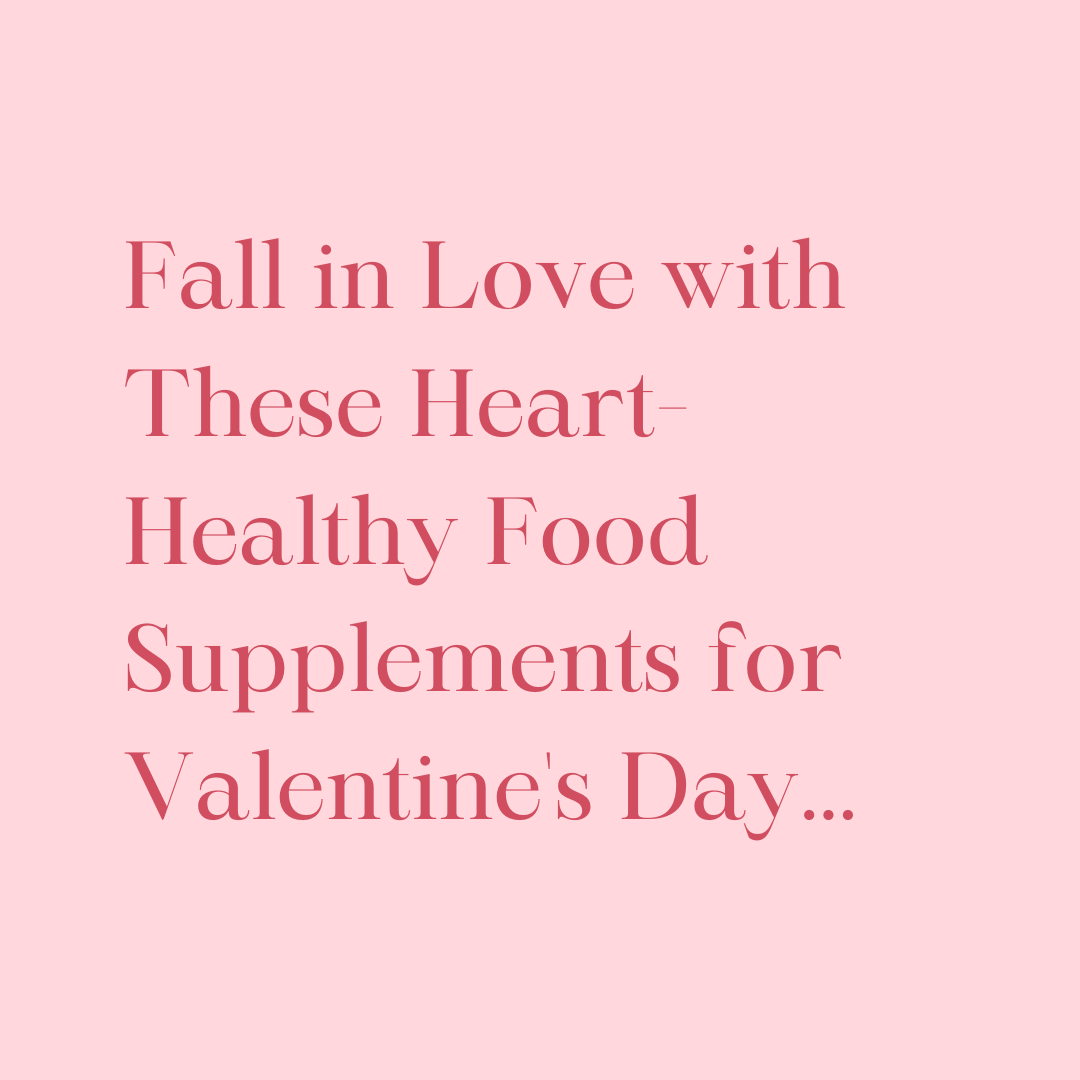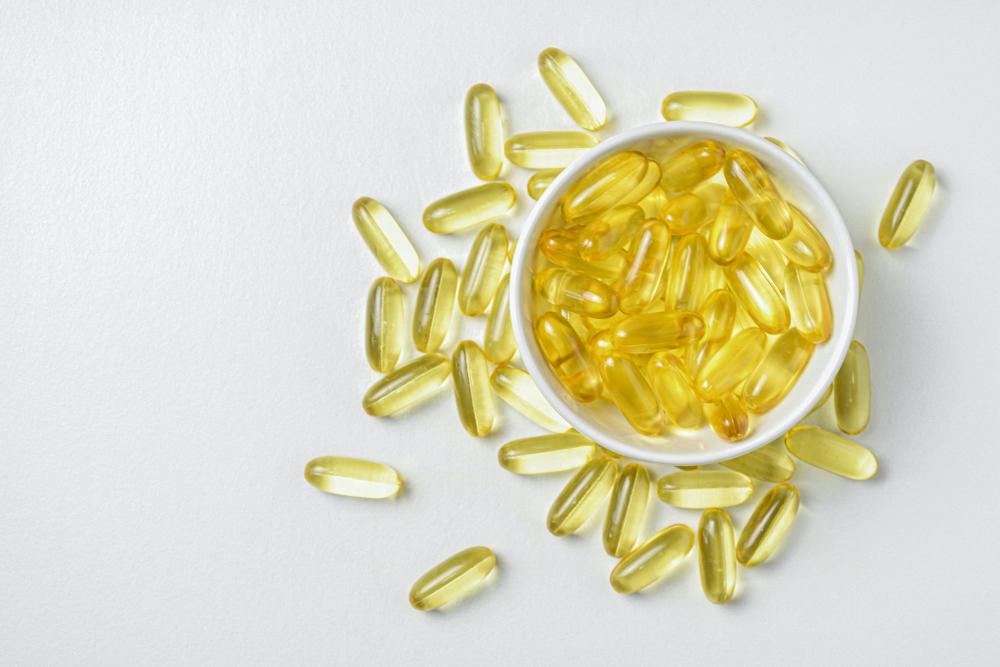Fall in Love with These Heart-Healthy Food Supplements for Valentine's Day

Flowers and chocolates are lovely on Valentine's Day, but they can't quite match the wonders of a beautifully ticking heart. Going beyond the typical flowers and chocolate, our list of science-supported supplements below packs a preventative punch by attacking heart disease risk factors.
Best of all, they mostly come from delicious, whole foods like fatty fish, leafy greens, nuts, and seeds—so your tastebuds can fall head over heels, too. Discover 6 heart-helpers to add to your grocery cart, meals, and daily regimen below.
Omega-3
Omega-3 fatty acids make blood less likely to clot inside your arteries and prevent gunky plaque from building up. When those arteries stay clear, blood can flow more easily, reducing the chances of heart attacks or strokes.
Aim for getting around 250 to 500 mg daily of the types called EPA and DHA - the active forms that will help your heart the most. A simple way to hit that amount is to eat fatty fish, like salmon or tuna, twice a week or take a capsule supplement.
So, why not serve up some fatty fish this Valentine's Day? Alternatively, a vegan dish with chia seeds or flaxseed will give you a good dose.
Vitamin B1
Thiamine contributes to the heart's normal function and helps turn the carbs we eat into usable energy that powers our body's cells.
Without sufficient thiamine levels, the heart must work harder to keep beating correctly over time. Skimping on too much B1 can ultimately starve the heart of energy and lead to congestive heart failure.
Nutrition experts recommend adults consume between 1 and 2 milligrams of B1 daily. Whole grains, meat, eggs, fish, legumes, nuts, and seeds naturally serve thiamine.
Magnesium
Magnesium makes blood vessels more flexible, allowing them to relax and widen, which regulates blood pressure. Magnesium prevents calcium build-up in arteries over time, avoiding stiffening and calcification.
Research links sufficient magnesium to lower the risk of tiredness and fatigue, which poor heart health and blood pressure problems can cause. The best sources are foods like dark greens, whole grains, nuts, and seeds. Getting what we need from the diet could make a big difference. Supplements may help, too.
The bottom line is that magnesium keeps the heart ticking as it should, and an adequate intake of delicious foods this Valentine's Day can keep levels up and risks down.
Potassium
Potassium helps balance sodium in your body and causes tiny blood vessels called capillaries to open wider - this maintains normal blood pressure and allows more oxygen-rich blood to reach your heart. It also aids in signals sent through your nerves to coordinate the organised contraction of muscles.
The recommended daily amount of potassium (2,600mg for adults) is easy to get into your system with leafy green vegetables like spinach and kale, beans, potatoes with the skin on, and bananas - or take a mineral supplement.
Dietary fibre
Soluble dietary fibres promote heart health by reducing "bad" LDL cholesterol levels. These fibre types bind to cholesterol molecules while still in the digestive tract, ensuring they leave the body rather than being absorbed.
Fantastic sources of fibre include wholemeal bread, wholegrain breakfast cereals, brown pasta, and cocoa powder, so sipping on a rich hot chocolate this Valentine's Day might do you a world of good.
Coenzyme Q10
Ubiquinone protects our cells and boosts heart health. It delivers energy to the cardiac muscle, enabling robust blood pumping through the heart.
Unfortunately, our body's ubiquinone concentrations tend to decrease with age. Supplementing this coenzyme has shown promise for improving some heart failure signs by boosting heart pumping ability and efficiency. Additionally, ubiquinone may assist in keeping blood pressure at healthy levels for some people.
Ensuring adequate ubiquinone as we age seems vital for maintaining cardiac health so we can enjoy Valentine's Day for many years.
Summing Up
We often think of flowers and romance when it comes to matters of the heart, but we must also consider our literal heart health around Valentine's Day.
Omega-3 fatty acids found abundantly in fatty fish make blood less likely to clot and prevent plaque build-up so blood can flow freely. Vitamin B1 contributes to normal heart rhythm and converts carbs into usable energy that powers our cells.
Magnesium makes blood vessels more flexible, relaxing them and preventing calcium accumulation. Potassium balances sodium levels in our bodies, opening tiny capillaries and maintaining healthy blood pressure.
Soluble dietary fibre reduces harmful cholesterol levels by binding to cholesterol molecules before our bodies absorb them. Coenzyme Q10 delivers essential energy to heart muscle cells, enabling robust pumping.
The bottom line is that eating heart-healthy whole foods like leafy greens, nuts, seeds, and oily fish provides fantastic sources of all these nutrients, and targeted supplements offer an extra helping hand for our tickers to promote lifelong cardiac health. So, this Valentine's Day, take it easy and look after your heart.
PS – Happy Valentine's Day!











